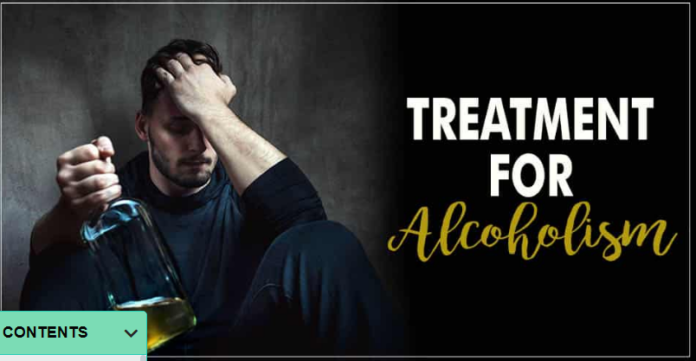Alcohol dependence is a serious problem that affects all areas of a patient’s life: career, ability to fulfill various obligations, interests and passions, relationships with others, and health (physical and mental). Unfortunately, once you have lost control over your life, you cannot regain it on your own. The only way to improve your functioning and give yourself a chance for future happiness is professional alcohol addiction therapy, which helps to change destructive patterns of thinking and behavior.
Treatment of alcoholism – symptoms and phases of alcoholism
Nobody becomes an alcoholic overnight. It is an insidious disease that develops gradually, often for a long time, unnoticed not only to the addict himself, but even to his environment. It is difficult to capture the moment when drinking under controlled conditions becomes risky and, in the long run, becomes an obsession.
The phases of alcoholism
There are four phases of addiction: the initial phase (pre-alcoholic), the warning phase, the critical phase, and the chronic phase (chronic). Alcoholism is an addiction that progresses for months or even years. With each phase of addiction, the symptoms of the disease intensify. Alcoholism is a process that is initially imperceptible to the alcoholic and his family, but the development of alcohol addiction makes contact with the addicted person more and more difficult after some time. The patient himself begins to feel the effects of drinking alcohol more and more.
Find help: Alcohol and Drug Rehab Near Salt Lake City
The drinking of the addicted person is getting out of control. Drinking during working hours leads to problems in the work environment. The patient’s family life also suffers. The only way to help an alcoholic is to find out about the causes of alcoholism and enroll him in an addiction treatment center. If a loved one does not want to be treated, he or she should be referred to forced rehab. Be aware that it is difficult to get someone who is unaware of their problem into CBT.
Alcoholism – Innocent Beginnings
Contrary to stereotypes, a person addicted to a psychoactive substance often does not stand out from the crowd at all. In the early stages, he is able to look good, carry out his duties and maintain relationships with friends and family. The first thing that starts to change as addiction develops is your relationship to alcohol. The sick person uses it to change their mood and emotional states. With its help, he gives himself courage, chases away sadness and anger, fights stress and relieves frustration. He begins to drink alone, although he has not done so before. He becomes irritated when he has no access to a drug or relatives ask him to limit it.
During various social gatherings and parties, he actively imposes the fastest possible drinking pace of consecutive “queues”. In addition, to achieve a similar degree of intoxication, he must consume greater and greater amounts of alcohol, which means that his tolerance to this substance increases. All of these symptoms can be viewed as warning signs that a person is losing control of their drinking and is on their way to developing mental and physical dependence.
Alcoholism – Losing control of your drinking
In the later stages of the disease, the patient completely ceases to control the amount of alcohol consumed by himself. He reaches for it even when he knows he shouldn’t, for example, before an important exam, interview, or presentation at work, when he is taking medication, and before driving.
His everyday life begins to subordinate his need to drink, and his hitherto passions and interests, family relations and duties are neglected. The alcoholic also begins to experience symptoms of craving (which include restlessness, anxiety, intrusive thoughts about drinking, disturbance in concentration, mood lability, weakness, palpitations, sleep problems, decreased appetite or excessive sweating) and withdrawal syndrome (including e.g. tremors of the extremities, pressure surges, nausea, vomiting, cold sweat and severe deterioration of mood).
Although there are more and more serious negative consequences over time, the person still drinks and is unable to stop on their own (although he may try to abstain temporarily to prove to himself that he is in control of the situation).
